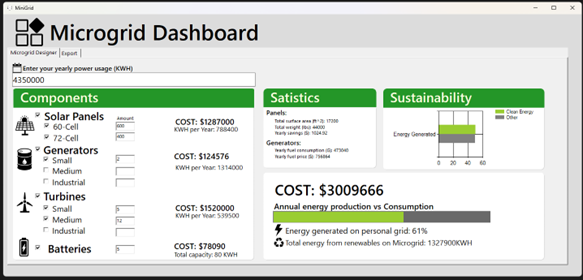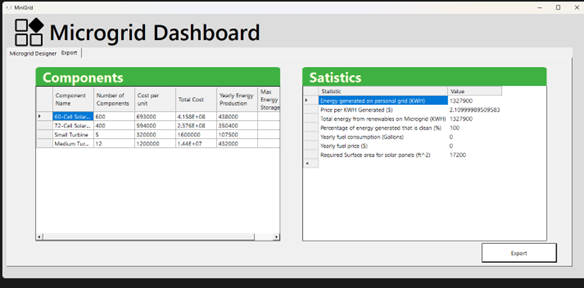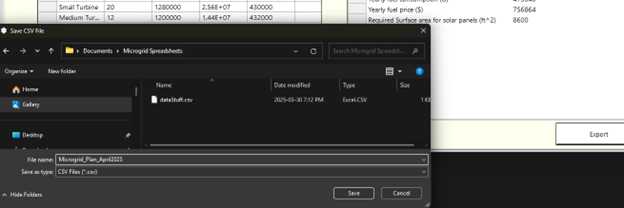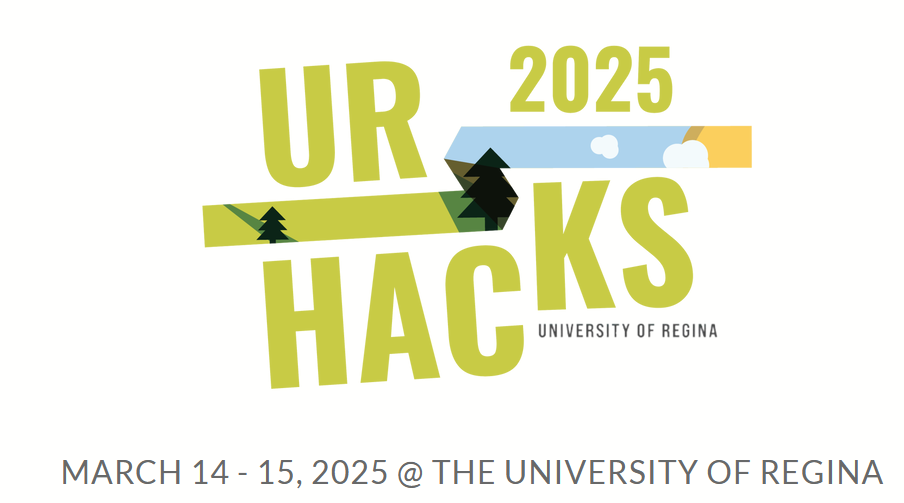Student Profile: Steven Hatcher
About Steven
 |
Hi! My name is Steven Hatcher and I am currently in the fourth year of my B.Sc. in Computer Science degree at the University of Regina. I will be receiving my degree this fall, which I hope to use in tandem with the knowledge and experience I have gained through passion projects to contribute to larger projects! I have experience in a variety of programming languages and frameworks, with a preference for back-end development, and am passionate about expanding the breadth and depth of my knowledge to improve my skills. |
UR Hacks: Sustainability
The University of Regina’s first hackathon, UR HACKS 2025, was an exciting experience, pitting passionate and hardworking individuals with different skill sets against one-another to work towards a shared goal: improving the planet. The core theme of the event was sustainability, with the primary directive being to build a project that focuses on providing improvements to any number of the UN’s 17 Sustainability Development Goals, and ultimately progress at least two of the UN’s 5 Ps of Sustainability (People, Planet, Peace, Partnership, Prosperity). The scope of the theme allowed for freedom in design without being overwhelmingly broad, and the prospect of contributing to the same goals as the U of R Office of Sustainability kept motivation levels high through the event. The U of R Office of Sustainability works tirelessly in accomplishing their 5-year sustainability action plan, and continues to solidify the University of Regina’s sustainability rating, which is in the top 25% of universities globally. I would like to thank the U of R Office of Sustainability for their involvement and contributions to the Hackathon - They carefully designed and provided the theme, remained on-site during the event to offer assistance, and acted as judges on the panel at the end of the event, providing informed metrics regarding the incorporation of the theme within each group’s project.
I would like to thank the U of R Computer Science Student’s Society for organizing the event, building the community of computer science students & alumni, and keeping us fed throughout the event! It was my first hackathon and it was an eye-opening event, it's amazing what can be built in such a strict time frame!
The idea I came up with for this Hackathon project was a dashboard for designing your own microgrid, allowing organizations to achieve independence in power generation, storage, and usage. The goal of this software is to provide a straightforward solution to organizations that are looking to take the leap of being the architect of their energy, with an emphasis on balancing cost with the environmental implications of the grid. An additional metric that is taken into consideration is the amount of energy that is being generated on the microgrid vs. being brought in from an external grid (e.g. the municipality's power grid).
I wanted to further pursue this project after the hackathon, so I built the project in C++ using the .NET framework, creating a fully-functional prototype whose logic can be easily expanded into other industry standard platforms, such as Microsoft's Power BI.
The user enters the annual power consumption of their home or organization, then designs their microgrid with their choice of solar panels, diesel generators, turbines, and batteries. Whenever the user changes any of the input options, the dashboard updates to display the new statistics of their grid. Organizations can export detailed Microsoft spreadsheets outlining the components on their grid, their properties, and relevant energy and financial information.
Designing your own microgrid can seem overwhelming, which is why I believe this software is useful for both individuals and organizations that are looking to develop energy independence with a focus on environment-friendliness (and wallet-friendliness). It provides the user the essential information regarding their microgrid design at a glance, and streamlines the overall development process by including only the quintessential components & their respective details. This software was designed with the Office of Sustainability’s goals in mind; implementing a microgrid for the campus is one of the current long-term goals in their action plan!



 |
 |